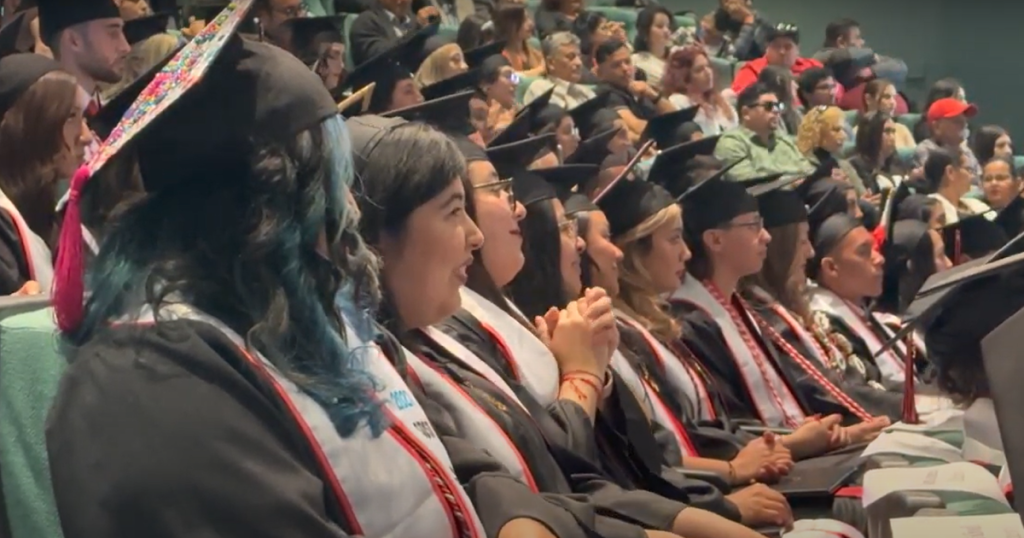Jose M. Vazquez faced a unique challenge as a high school student when he forgot his birth certificate one day, resulting in him being unable to attend school. Vazquez, now a senior at San Diego State University Imperial Valley, has been crossing the U.S-Mexico border for nearly nine years to attend school and will graduate on May 12 in Mexicali, Mexico. He is among tens of thousands of transborder students who cross the border to pursue an education in the United States, facing challenges and limitations due to their unique circumstances.
Transborder students have documentation that allows them to cross into the U.S. for school, but many choose to live in Mexico to stay with their families and save costs. Laura Dicochea, a researcher in this field, describes this as a circular migration pattern, where students may have lived in the U.S. before returning to Mexico for various reasons. Vazquez, the first in his family to attend college, reflects on his educational journey and the significance of being able to study in the United States while maintaining his ties to Mexico.
Vazquez’s routine during high school involved waking up early, waiting at the border for hours, and arriving at school before his first class. Similar to Vazquez, Diana Lara Zamora, a senior at Arizona State University, crossed into the U.S. daily during her school years and faced long morning commutes. Javier Melara, who will graduate alongside Vazquez, started crossing the border for school at a young age and faced various challenges and fears throughout his educational journey. These students embody the resilience and determination of transborder students in pursuing their education despite obstacles.
Transborder students often have to deal with long wait times, interactions with border patrol officers, and scrutiny from community members. The backdrop of a national migration debate adds to the challenges they face on a daily basis. Melara shared his experiences of being sent for secondary inspection and feeling constantly fearful, while Lara Zamora encountered frustration from community members and even transferred schools as a result. Despite the hardships, these students are set to graduate and pursue further educational or career goals.
The journey of Vazquez, Lara Zamora, and Melara culminates in their upcoming graduation, marking a significant milestone in their lives. Lara Zamora plans to enroll in graduate school, Vazquez aims to pursue his passion for drag performance during a gap year, and Melara has aspirations to continue his education and dream without limitations. Graduation holds special meaning for these students, as they are the first in their families to achieve this milestone, paving the way for future generations and inspiring others to overcome challenges and succeed.
Vazquez’s mother, who has supported him in his academic and personal endeavors, will have the opportunity to attend his graduation in Mexicali, a momentous occasion after being unable to attend his high school graduation due to border restrictions. The significance of having family members present at these events underscores the importance of their support and encouragement in the students’ educational journeys. As first-generation students, Vazquez, Lara Zamora, and Melara hope to inspire and empower others facing similar challenges, demonstrating that with determination and perseverance, success is achievable regardless of the obstacles faced.


